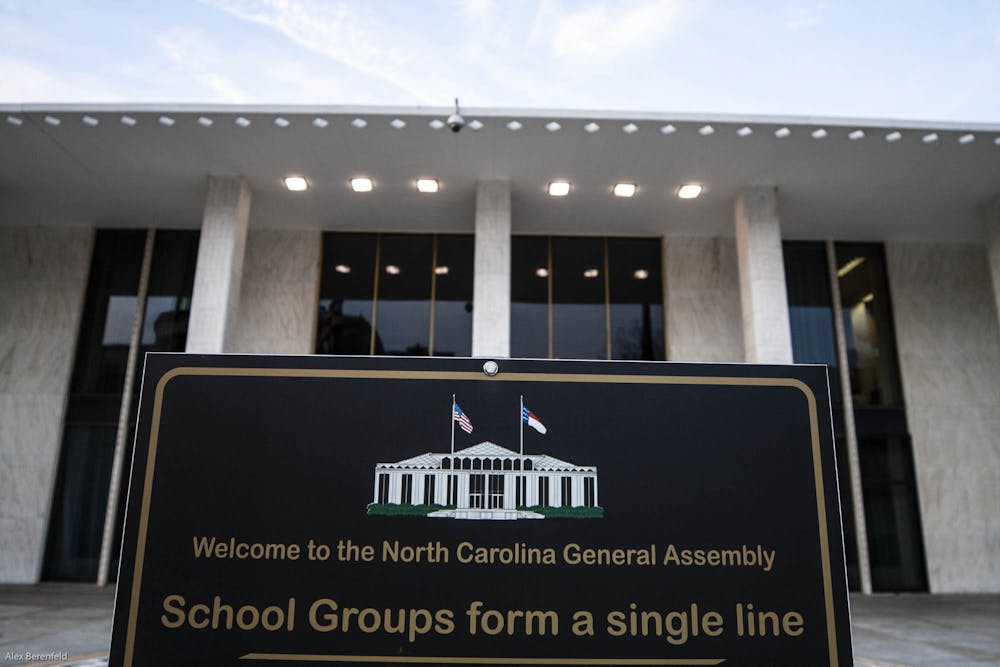“The sense that I got from this election is that everyone was in their respective partisan corners, they weren't willing to budge very much.” Bitzer said in the email.
He said party loyalty down the ballot gave Republicans an edge across the state.
Gearing up for gridlock
With the major players in state politics remaining in place, experts maintain that the prospect of groundbreaking legislative change is unlikely.
Mitch Kokai, senior political analyst at the conservative John Locke Foundation, said in an email that no one should expect a drastic change in policy over the next two years.
He said Republican leaders in the General Assembly have interpreted the election as an endorsement of their work over the past decade. He said Republicans in both chambers signaled their interest in continuing to work toward economic growth, whether by adjusting taxes or spending or rolling back regulations, and expanding school choice.
In terms of the budget, he said Cooper holds the keys to determining whether there will be more contention or more cooperation between the executive and the legislative branches.
Kokai also said Medicaid expansion is no more likely to pass now than it was before the election. He said that not only did the issue play virtually no role in competitive legislative races, but Republicans have further interpreted their retention of the majority as showing the public’s lack of enthusiasm for the subject.
If there is to be any reform on health care or any other issue, he said, the attitudes at the top of both policymaking branches of government will have to change.
“If the governor and Republican legislators return to their respective corners and prepare to duke it out again in 2021, we’re likely to see another period of legislative gridlock,” Kokai said in the email. “If, on the other hand, both camps choose to cooperate rather than fight, we could see positive developments on the state budget, health care, education, and other top priorities.”
Leaving room for change
Still, not everything will remain exactly the same in North Carolina.
To get the day's news and headlines in your inbox each morning, sign up for our email newsletters.
Joseph Czabovsky, an assistant professor at UNC’s Hussman School of Journalism and Media, said one change might alter the way the state operates in the coming years. The change will occur in the state’s judiciary, particularly at the highest level.
Republicans are slated to fill all three vacant seats on the state’s Supreme Court, which includes that of the chief justice. However, it’s important to note the election results here aren’t official just yet, with the candidates for chief justice being split by under 500 votes as of Dec. 1.
Though the courts will become more conservative, Czabovsky said the changes they make depend largely on the cases that appear before them over the course of the next few years.
He also said two wildcards could change how election results impact N.C. – the ongoing effects of the COVID-19 pandemic and the actions of the federal government.
He said the former is a monumental challenge because it’s so unpredictable. He said it’s difficult to tell whether the pandemic will play a role in changing the political dynamics between the two parties in the state government.
As for the federal government, he said changes at the federal level could carry over to state governments.
“In theory, especially during a time like a recession 10 years ago or COVID now, if the federal government changes things like funding to states or local municipalities, that could change some state dynamics,” Czabovsky said.
He said changes at the presidential level, with the election of Joe Biden, could play a role in changing the level of funding directed towards states. However, he said the gridlock between the legislature and the executive at the federal level could make it so that very little change comes about there.
Chris Cooper pointed out a policy item where this year’s election results will have a massive impact: redistricting.
Since the creation of legislative district boundaries at both the state and federal level occurs every 10 years, Republicans will once again have the pen in their hands when it comes to drawing the maps, both in North Carolina and across the country.
Despite the surprisingly unsurprising electoral results throughout the state, he said the November election was still very important.
“This election will set the tone for the next 10 years of American politics,” Cooper said.
@GMolero1
@DTHCityState | city@dailytarheel.com



